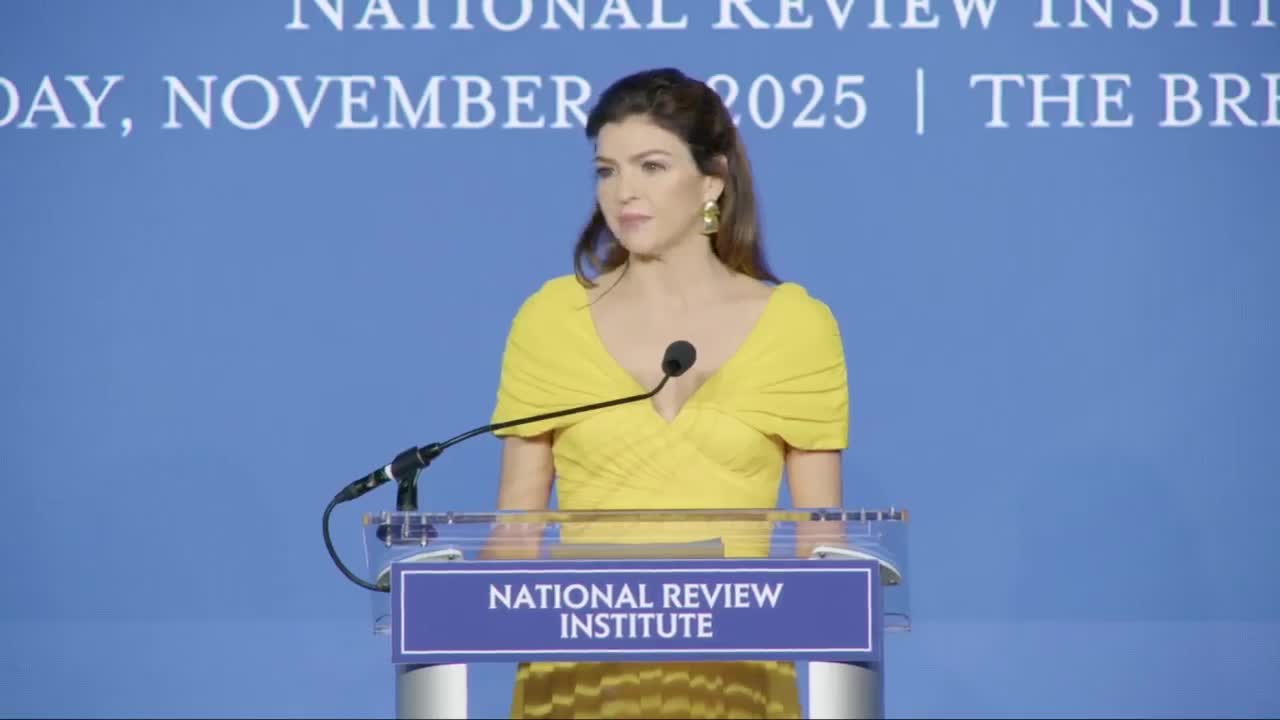DeSantis at National Review: praises Florida gains, warns on AI and immigration
Get AI-powered insights, summaries, and transcripts
Subscribe
Summary
Governor Ron DeSantis told a National Review audience that Florida's conservative policies delivered economic and education gains, highlighted initiatives such as HOPE Florida and Everglades restoration, and warned against unchecked AI and unchecked immigration.
Speaker 1 opened the event by introducing Governor Ron DeSantis and praising his record, saying the governor had led reforms including the HOPE Florida program and, in Speaker 1's words, "we have transitioned off more than 33,000 people from government assistance" and reduced the foster-care population "by 47%." Speaker 1 concluded by calling DeSantis "one of the greatest governors of our time."
Governor Ron DeSantis began his remarks by welcoming attendees "to the free, red, and conservative state of Florida," thanking hosts and framing his speech around conservative governance and institutional reform. He said Florida's budget is now smaller than New York's despite having more residents and argued the state has paid down nearly half of what he called the state's historical debt. DeSantis cited third-party rankings, saying Florida was recently named the top economy by CNBC.
DeSantis emphasized education and school choice as central achievements. He said Florida now has "1,700,000 students on various school choice programs" and that about "400,000" students attend charter schools. He described measures aimed at teacher pay and restrictions on how funds may be spent to direct money toward salaries rather than bureaucracy.
On law-and-order and elections, DeSantis said his administration has pursued criminal-justice and election-integrity actions, including removing certain local supervisors and creating a state office to prosecute voter fraud. He described actions against what he called "Soros-backed prosecutors" and credited tort reform with lowering insurance costs and returning rebates from insurers.
DeSantis framed his administration's approach to higher education as removing references to diversity, equity and inclusion (DEI) from policy and instituting review of tenured faculty every five years. He said the state's reforms produced positive performance and free-speech rankings for state universities.
On ballot measures, DeSantis said Floridians defeated two high-profile 2024 initiatives — a marijuana-related amendment and an abortion-related measure — and that outside groups spent about $275,000,000 in support of those initiatives.
Immigration and migration were recurring themes. DeSantis argued that migration into Florida has tended to favor Republican voters and said his administration took direct action on illegal immigration, including deployments to the southern border and other measures he described as necessary to protect Floridians.
DeSantis also addressed technology policy, warning against special regulatory carve-outs and a federal backstop for AI companies such as OpenAI. He said conservatives should resist "too big to fail" protections for tech firms while ensuring individual protections and intellectual-property rights.
On the environment, DeSantis characterized Florida's work restoring the Everglades as a major restoration effort and said those conservation steps have won cross-party support.
He closed by invoking the Founding Fathers and urging conservatives to defend what he called the "Sacred Fire of Liberty." The remarks were largely celebratory of his administration's record and offered policy priorities going forward.
Next steps: the speech was a keynote-style address at the National Review event; no formal votes, motions or policy adoptions occurred during the event.
